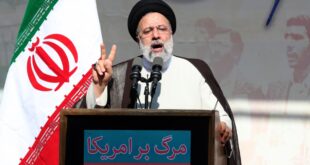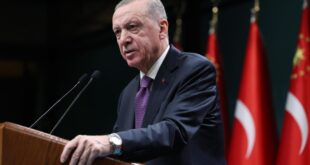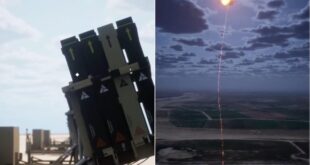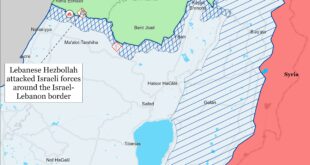 TEHRAN (FNA)- While President George W. Bush’s trips to Iraq have been brief and surrounded by secrecy, a visit by Iran’s president on Sunday is being heralded with much fanfare, raising US concerns it will erode American influence in the region.
TEHRAN (FNA)- While President George W. Bush’s trips to Iraq have been brief and surrounded by secrecy, a visit by Iran’s president on Sunday is being heralded with much fanfare, raising US concerns it will erode American influence in the region.
President Mahmoud Ahmadinejad’s visit, at the invitation of the Iraqi government, will be the first by an Iranian president to Baghdad since 1979.
Bush used his own trip to the region last month to cajole moderate Arab allies to join a US drive to isolate Iran because of its nuclear program.
“President Ahmadinejad’s visit is aimed at stealing America’s thunder … the Iranians are masters of propaganda,”
“It is his (Ahmadinejad’s) moment of triumph. It is his Mission Accomplished moment,” said Michael Rubin of the American Enterprise Institute, a conservative Washington think tank, referring to a visit by Bush to a US aircraft carrier in May 2003, two months after the invasion of Iraq, in which he addressed troops under a banner saying “Mission Accomplished.”
The significance of Ahmadinejad’s trip was further boosted on Friday when an Iranian Foreign Ministry official said that Tehran had been discussing a $1 billion loan to Iraq for projects to be handled by Iranian firms, which could be a big fillip for the shattered Iraqi economy.
Bush has never spent the night in Iraq and like his two previous visits, his most recent trip in September 2007, was kept secret until after his arrival.
The United States insists it does not view Ahmadinejad’s two-day trip, which begins on Sunday, as a provocative gesture.
A senior Bush administration official said Ahmadinejad had always been an “extremely worrisome figure” for the US and there were concerns he could cozy up too much to Iraq’s government.
Iran expert Karim Sadjadpour said while Bush’s tour was aimed at uniting Arab countries against Iran, Ahmadinejad wanted to show through his high-profile trip to Baghdad that Tehran was a major player and could not be sidelined.
“The US may have hard power in Iraq – they may have tanks and tens of thousands of soldiers and artillery – but Iran has soft power and has a lot of political and cultural influence,” said Sadjadpour of the Carnegie Endowment for International Peace, a Washington think tank.
Since the United States invaded Iraq in March 2003 and toppled President Saddam Hussein, Iran has been highly critical of the US role, saying US military deployment in Iraq has stirred up violence and made the region less stable.
The Iraq government is providing security for Ahmadinejad but US officials said Washington obviously would be closely monitoring his movements and wanted to ensure his safety.
 Eurasia Press & News
Eurasia Press & News



